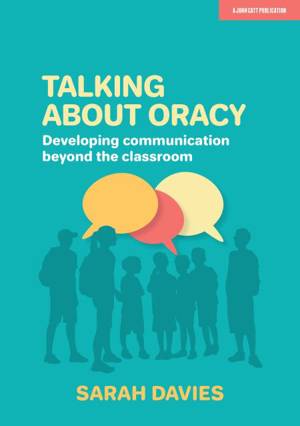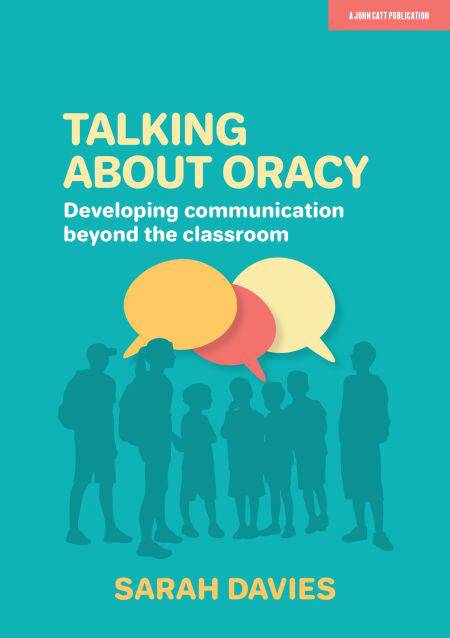
- Afhalen na 1 uur in een winkel met voorraad
- Gratis thuislevering in België vanaf € 30
- Ruim aanbod met 7 miljoen producten
- Afhalen na 1 uur in een winkel met voorraad
- Gratis thuislevering in België vanaf € 30
- Ruim aanbod met 7 miljoen producten
Talking about Oracy: Developing communication beyond the classroom E-BOOK
Sarah DaviesOmschrijving
Whether considering the art of debate; understanding dialogic teaching methods; the necessity of questioning; or the ability to assess and develop these skills, this book has been written by a classroom teacher, for classroom teachers, in the hope that oracy is dragged out of the shadows and recognised for its significance to improving students’ life skills and future aspirations.
When we think about the transferable skills all students will take with them post-academia, oracy, literacy and numeracy should logistically stand proudly side by side. This triad of skillsets are the key components that are used to measure intellectual development in childhood, as well as being further instilled and nurtured in all students throughout their education.
However, as children become students and as these students become critical thinkers, an element of this crucial triad appears to have been disowned in recent years.
In 2020, oracy appeared to have even less relevance in academia, with the only supportive provision for both Language and Literature to deal with any missed learning being the eradication of any recorded proof of this skill. Yet another indication that oracy has, in some circumstances, been cast into the shadows and banished into the realm of the subject specific curricular.
We need to be realistic and embrace the idea that this skill is a necessity to success for all learners post-academia. Training students in the ability to communicate effectively with different audiences in different contexts, needs to be brought back into the spotlight in the hopes that we can attempt to resolve any misconceptions regarding oracy’s place in the curriculum.
Through the recognition of the theoretical understanding of communication that will provide the foundations for this book, the aim is that it acts as a supportive guide that will provide suggestions and strategies in order to hopefully empower and encourage educators in all subjects in education, thus restoring the use and appreciation for this necessary skill both inside and outside the classroom.
For so long, focus has been on the stress and rigor of assessments, and the fulfilment of the curriculum to ensure that all students can navigate their GCSE examinations. This book will question whether this will have a detrimental effect on students who may have been exposed to fewer of the skills that they will require when leaving an educational setting and venturing into everyday life.
So, let’s address the elephant in the room, and provide it a voice.
Specificaties
Betrokkenen
- Auteur(s):
- Uitgeverij:
Inhoud
- Taal:
- Engels
Eigenschappen
- Productcode (EAN):
- 9781913808914
- Verschijningsdatum:
- 16/12/2020
- Uitvoering:
- E-book
- Beveiligd met:
- Adobe DRM
- Formaat:
- ePub

Alleen bij Standaard Boekhandel
Beoordelingen
We publiceren alleen reviews die voldoen aan de voorwaarden voor reviews. Bekijk onze voorwaarden voor reviews.











